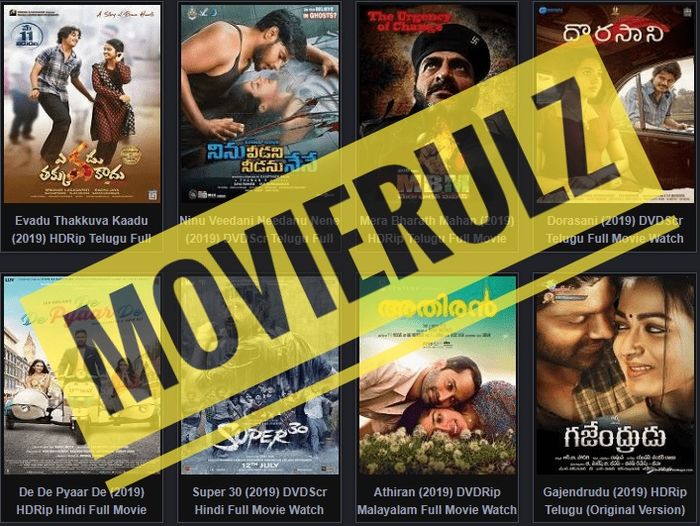Movierulz Updates: Latest Movies, Reviews, & News You Need!
Is the world of cinema truly borderless, offering a kaleidoscope of stories from every corner of the globe? The rise of platforms like Movierulz, alongside the global appetite for diverse content, suggests that this may, indeed, be the case.
The digital age has irrevocably altered the landscape of entertainment, and the film industry is no exception. Accessibility, convenience, and a voracious audience demand have fueled an explosion of content delivery platforms. These platforms, whether official streaming services or more questionably sourced websites, cater to an insatiable desire for movies, television shows, and everything in between. Movierulz, in particular, has emerged as a prominent player in this ecosystem, promising a vast collection of films from various industries, primarily focusing on Indian cinema but also encompassing Hollywood productions.
However, the allure of readily available content, often at no cost, comes with significant ethical and legal considerations. The unauthorized distribution of copyrighted material, a practice often associated with platforms like Movierulz, poses a threat to the financial viability of the film industry and the creative individuals who contribute to it. This article delves into the complexities surrounding Movierulz, examining its role in the contemporary media landscape while critically analyzing the implications of accessing and distributing content through such platforms.
The core premise of Movierulz and similar platforms is simple: to provide users with access to a wide array of movies and television shows, often for free. The appeal of such a proposition is undeniable. For viewers, it offers an immediate and convenient way to access content that might otherwise be difficult to find or require a subscription fee. For those who lack access to traditional cinema, cable, or legitimate streaming services, these platforms offer a seeming lifeline to the world of entertainment. Platforms like Movierulz boast a substantial collection, including the latest releases and classic films. For instance, users can often find Bollywood, Tollywood, and Hollywood movies all in one place, catering to diverse tastes. The promise of high-definition quality and frequent updates further enhances the user experience, keeping audiences engaged and returning for more.
The business model of such platforms is often based on advertising revenue, user subscriptions (where applicable), or, in many cases, the illegal distribution of copyrighted content. This makes it easy for platforms to provide content at no cost to the user, as their primary goal is to maximize user traffic. This traffic is then monetized through advertising, with the platform owners earning revenue through the display of ads. These ads can range from benign display advertisements to potentially harmful pop-ups and redirects. Furthermore, the platform can also generate revenue through sponsored content and affiliate marketing, further complicating the ethical landscape.
The platform often feature extensive catalogs of movies and TV shows from various industries. Among these, the Indian film industries, specifically Tollywood (Telugu cinema), Bollywood (Hindi cinema), Kollywood (Tamil cinema), and Mollywood (Malayalam cinema), hold prominent positions. This focus on Indian cinema reflects the demand from a huge population of Indian viewers. In addition, these platforms offer a global touch by also incorporating content from Hollywood. They often provide dubbed versions or subtitles in different languages, which further broadens the accessibility to a wider audience. Users might find reviews, news, and trailers to supplement the movie experience, which further contributes to their attractiveness.
The popularity of such platforms also raises serious questions about the legal and ethical implications. These platforms often operate in a grey area, offering content that is copyrighted and therefore illegally distributed. The movie industry is a business that depends on licensing to protect its content. When someone watches content through Movierulz, they do not provide a revenue stream for the studios or creators. The unauthorized streaming or downloading of copyrighted material constitutes copyright infringement, which can lead to legal penalties. Authorities around the world are actively working to stop the online piracy of copyrighted content, and users who engage in such activities face the risk of legal repercussions, including fines and potential lawsuits.
The digital environment is constantly changing, and the platforms are also evolving to adapt. The constant cat-and-mouse game between copyright holders and those who offer the content illegally is ongoing. The platforms often shift domains, use different IP addresses, and employ other techniques to avoid legal repercussions. They may also implement measures to bypass or circumvent copyright protection technologies. The evolution of the internet, in terms of streaming technology, also contributes to the growth of such platforms. As internet speeds have increased, high-quality streaming, which adds to the overall user experience, has become much more widespread. In addition, the ease of accessing streaming content on a variety of devicesfrom smartphones to smart TVscontributes to the popularity of such platforms.
A crucial aspect of understanding the impact of Movierulz is to examine the film industries and the ways they intersect with the content offered on the platform. The Indian film industry, in particular, is a significant contributor to the global entertainment landscape. The production of movies in various languages, including Hindi, Telugu, Tamil, Malayalam, and Kannada, generates massive revenue. The success of a movie is greatly dependent on factors such as the actors, directors, story, music, and box office performance. Platforms such as Movierulz provide information like movie reviews, box office numbers, and insights into the casting of the film. They help audiences to stay connected to the latest trends and happenings in the Indian and international film industries.
The recent release of "Game Changer," starring Ram Charan, is a good illustration of the interplay between the film industry and the platform. The film generated a great deal of anticipation, and when the trailer was released, it was met with considerable enthusiasm. Director S.S. Rajamouli's participation added to the excitement, as he is famous for his distinctive direction style. The films popularity, and the public's interest, makes such platforms a prime location for engagement, with the platform bringing in a large audience to view, share, and discuss. Additionally, the wide release of films like "Daku Maharaj," with Nandamuri Balakrishna, emphasizes how the Indian film industry continues to provide content with a wide variety of interests and themes.
Legitimate streaming services, such as ZEE5, offer another viewpoint for comparison. The popularity of legitimate services demonstrates the public's willingness to pay for content that provides a legal and high-quality viewing experience. These streaming services offer vast libraries of movies and TV shows, including many of those found on platforms like Movierulz, and provide HD streaming. Their legal status assures that they comply with copyright laws. These platforms also have features such as personalized recommendations, offline downloads, and diverse language options. These features contribute to the user experience and make them an appealing option for users who value legal and quality content.
The battle against piracy in the film industry is ongoing. The authorities are implementing a variety of methods to prevent copyright infringement. There are regulations in place that are designed to punish those who engage in illegal downloading or streaming. The copyright holders are consistently working to take down the illegal content and they often pursue legal action. Educational initiatives are designed to raise awareness about the damage that piracy can do, emphasizing the significance of supporting legitimate content creators. The use of technologies like digital watermarks and encryption is designed to discourage piracy and defend intellectual property.
The ethical implications of accessing content through platforms such as Movierulz must be considered. While the platforms may provide easy access to films and TV shows, it is important to remember that the platforms are usually based on illegally sourced content. This harms the film industry in many ways, reducing revenue and harming the creative people who depend on this revenue. Additionally, the users who engage in illegal streaming or downloading may face legal and financial risks. It is essential to be aware of the implications and to consider the ethical implications of accessing such platforms.
The media landscape is changing rapidly, and audiences have access to a wide variety of options for viewing content. Legitimate streaming services, rentals, and purchases provide options for consuming content legally. Staying informed about copyright laws and the ethical considerations is critical for everyone who enjoys movies and TV shows. By supporting legal and ethical methods for content consumption, audiences can play a role in defending the film industry and encouraging creative innovation. This supports the sustainable growth of the film industry. This approach gives audiences access to quality content without jeopardizing ethical and legal boundaries.
In conclusion, the existence of platforms like Movierulz exemplifies the complexities of content consumption in the digital age. While they offer convenience and a vast selection of movies and TV shows, they come with significant legal, ethical, and financial implications. As the film industry continues to evolve and technology progresses, the discussion around piracy and content accessibility will remain an important and continuously evolving topic. The responsibility of consumers to make informed choices and support legal and ethical content consumption methods remains paramount in ensuring the long-term health and prosperity of the global film industry.
Ultimately, the question is not whether we have access to a global village of cinema, but rather, how we choose to inhabit it.


